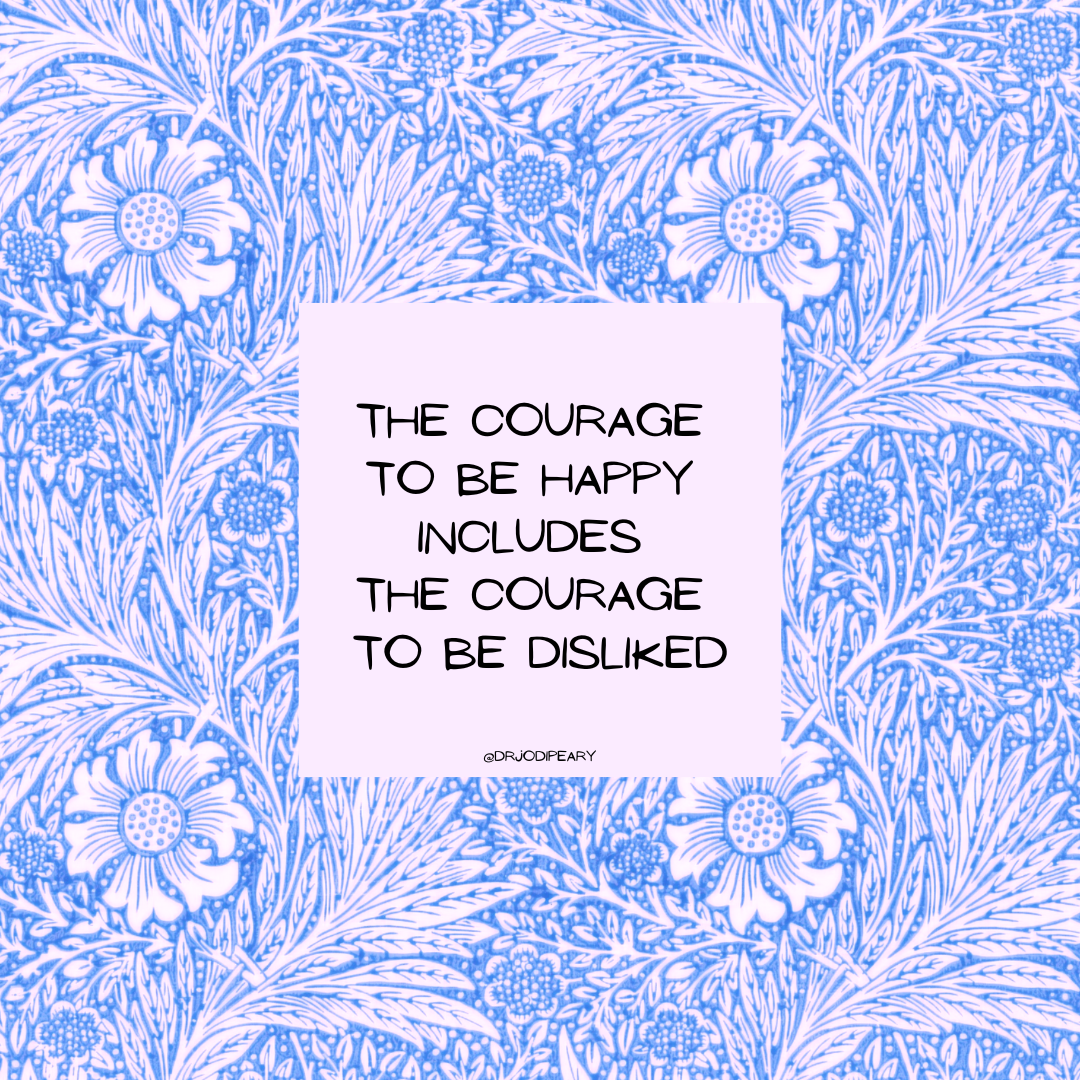Courageous Authenticity
Courageous authenticity is:
Outwardly expressing your true self;
Having the courage to speak and be true to what is true for you in your heart without altering or betraying yourself in order to please another;
Daring to share your uniqueness with the world.
“The gift you carry for others is not an attempt to save the world but to fully belong to it.
It’s not possible to save the world by trying to save it. You need to find what is genuinely
yours to offer the world before you can make it a better place. Discovering your unique
gift to bring to your community is your greatest opportunity and challenge. The offering
of that gift—your true self—is the most you can do to love and serve the world. And it is
all the world needs.”
Courageous authenticity begins with the relationship we have with ourselves and then moves outward into our relationships with others.
Maggie’s Story
Maggie and Bill were married for 11 years. Maggie was lonely. She and Bill had grown apart and their friendship had also deteriorated. Maggie wanted more intimacy in her marriage but was afraid to share her desires with Bill. Maggie worried that Bill had lost interest in her after the birth of their second child. She worried Bill would blame her for the distance that had come between them. Her worry grew and her pain and loneliness grew.
Maggie had tried to convince herself that no one had a happy marriage. That she was being too picky. That she wasn't someone anyone would want to be close to. Maggie tried to convince herself that these myths were true because she feared that if she shared her feelings she would receive rejection from Bill.
Maggie was not only less than forthcoming with Bill but she was dishonest with herself. She learned that she needed to start being real with herself. Maggie realized that she felt rejected already without sharing her truth with Bill and in holding her true feelings in, the resentment within her was growing.
It took a lot of courage and some time for Maggie to share that she wanted to have a serious conversation about the marriage with Bill. The discomfort she was currently feeling felt less painful than the uncertainty of putting her concerns out there to Bill and not knowing what his response would be.
She worried, "What if my feelings about wanting to work on the marriage are not reciprocated? What if Bill decides he wants a divorce? What if Bill did agrees to changes in the relationship but they are no longer capable of connecting in a deep and meaningful way? What if my fear of rejection exists side by side with my fear of not being rejected and I am responsible for some of the distance in the marriage?"
Maggie began to journal and work through these issues. She had to admit to herself the truth she felt deeply, that she had been giving love, consideration, and understanding to Bill and she was growing resentful that her actions were not being reciprocated. The anger began to build up within her and she realized that part of why she wasn't sharing what she was thinking and feeling was because of her fear of her own anger. Would her anger erupt in such a way that she would be abandoned by Bill?
If we're not being honest with ourselves internally, there's no way we can be honest externally out in the world.
Many of us learn when we are young that we must hide from the pain we feel or others will find us to be needy or demanding. We feel that if we hold everything in, we will have some control over the outcome, but that isn't true.
One person can not control a relationship with their individual behavior. There's a need to surrender, to the truth of not being able to control the outcome. Staying out of alignment with our truth and our hearts and minds will continue a painful cycle, not heal that cycle.
The truth is some control is available to us. We can control being true to ourselves and our relationship with our authentic selves. We can make a choice to take an action, to be authentic with both ourselves and our outward expressions. We can validate ourselves by speaking our truth rather than looking for external validation for a self that is not really a part of our authentic being, but one designed to please others.
How Can I Apply Courageous Authenticity to My Life?
Think of an experience you have had either with a person (with a partner, friend, roommate, family member, neighbor, co worker, etc.) or in an area of your life where you wanted to be authentic, but you were not true to your authentic self.
Ask yourself these questions:
1. What am I afraid would happen if I shared my true self with this person?
2. How will not sharing my true self with this person make me feel?
3. How would it feel to not be afraid to share what I'm thinking and feeling?
4. If I weren't afraid to be authentic, what would I most want to say to this person right now?



